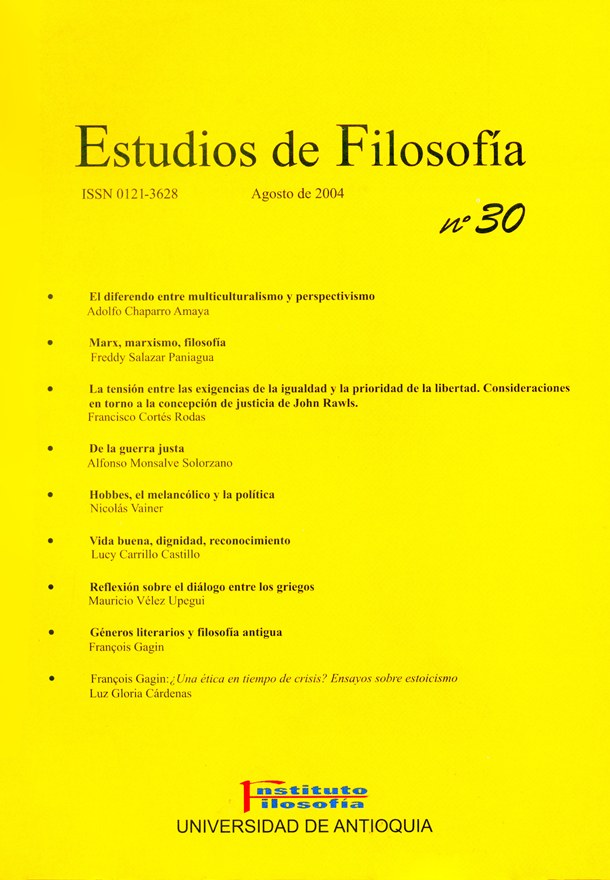Literary Genres and Ancient Philosophy
DOI:
https://doi.org/10.17533/udea.ef.12895Keywords:
Literary genres, ancient philosophy, ways of life, Cleanthes' Hymn to ZeusAbstract
There is an apparent correspondence between literary genres and the exercise of philosophy, but what is it? If we remember the a-typicality of the philosopher in search of a meaning that orients life, we understand there is no exclusive literary genre for the exercise of philosophy. The Greek way of philosophizing can fit both a hymn's or anepistle's structure. No genre is exclusive to a philosophical experience because in order to understand this experience it's necessary to reveal first a negative definition of what is not; such experience does not consist in provoking meaninglessness or loss of meaning and, there isn't in Antiquity an exercise of literature suitable for the cult of ugliness or for an opening to wrong. Chaos or hubris does not belong in the realm of what’s arguable and philosophy opposes values that are not the true values. After the place of uncertainty where the philosopher positions himself, in this tension between doxa and episteme, the fundamental choice of life comes, and this is what determines, in turn, the choice of one literary genre or another. The fundamental choice of life actually is a school ofeducation and the discourse that shapes it mustfully correspond with it. Thus the almost exclusive choice of this or that literary genre in this or that school is explained. The above can serve as an example to apprehend Cleanthes' Hymn to Zeus.
Downloads
Downloads
Published
How to Cite
Issue
Section
Categories
License
Copyright (c) 2004 François Gagin

This work is licensed under a Creative Commons Attribution-NonCommercial-ShareAlike 4.0 International License.
Authors who publish with this journal agree to the following terms:
1. The Author retains copyright in the Work, where the term "Work" shall include all digital objects that may result in subsequent electronic publication or distribution.
2. Upon acceptance of the Work, the author shall grant to the Publisher the right of first publication of the Work.
3. The Author shall grant to the Publisher a nonexclusive perpetual right and license to publish, archive, and make accessible the Work in whole or in part in all forms of media now or hereafter known under a Creative Commons Attribution-NoCommercia-ShareAlike (CC BY-NC-SA 4.0), or its equivalent, which, for the avoidance of doubt, allows others to copy, distribute, and transmit the Work under the following conditions: (a) Attribution: Other users must attribute the Work in the manner specified by the author as indicated on the journal Web site;(b) Noncommercial: Other users (including Publisher) may not use this Work for commercial purposes;
4. The Author is able to enter into separate, additional contractual arrangements for the nonexclusive distribution of the journal's published version of the Work (e.g., post it to an institutional repository or publish it in a book), as long as there is provided in the document an acknowledgement of its initial publication in this journal;
5. Authors are permitted, and Estudios de Filosofía promotes, to post online the preprint manuscript of the Work in institutional repositories or on their Websites prior to and during the submission process, as it can lead to productive exchanges, as well as earlier and greater citation of published work (see The Effect of Open Access). Any such posting made before acceptance and publication of the Work is expected be updated upon publication to include a reference to the Estudios de Filosofía's assigned URL to the Article and its final published version in Estudios de Filosofía.















